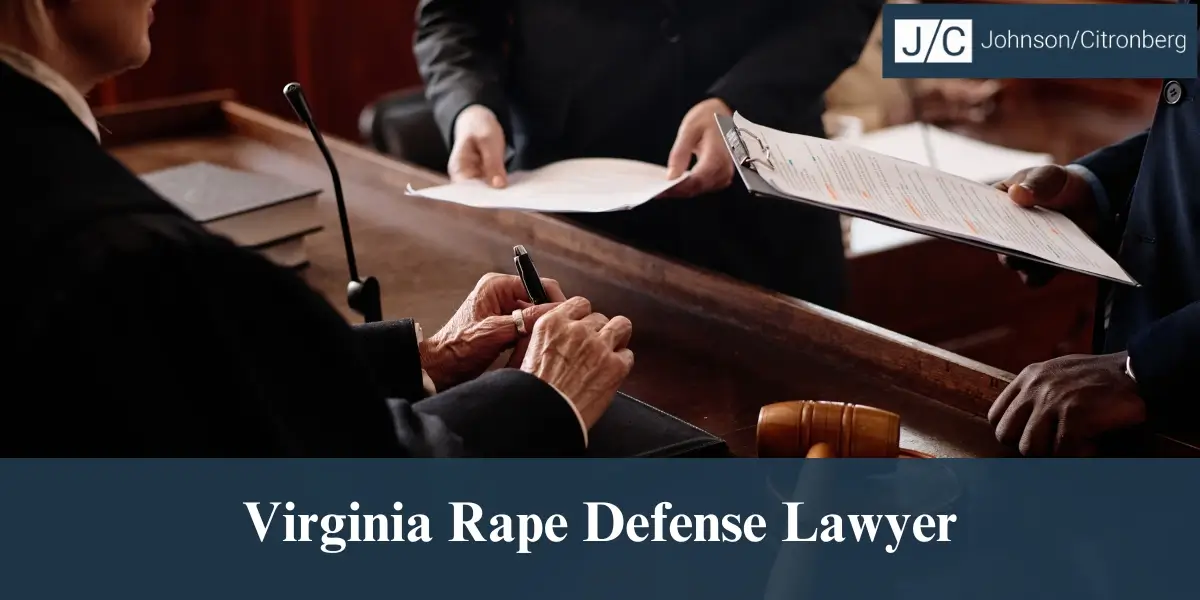A solid rape defense involves a thorough independent investigation, expert witnesses, and extensive trial preparation.
The earlier we get involved, the greater the chance there is that we will be able to gather the evidence we need to prove that the sexual encounter was consensual. A good defense will therefore begin with a thorough independent investigation into the allegations as well as the alleged victim.
Step 1: Independent Investigation
An independent private investigator should conduct a thorough investigation into the allegations by obtaining all police reports in which the alleged victim is named. While some police reports may not concern your case, these reports can show a motivation to lie or a reason why the alleged victim may not be telling the truth (e.g., drug use, scared of violating probation, frightened that a boyfriend or husband may find out). It is also not uncommon for an alleged victim to have made allegations against other people which were inaccurate or misleading.
A private investigator will also scour social media accounts. In virtually every case, the alleged victim will have made incriminating statements on social media which either concern the case directly or which show that the victim is a person who should not be believed. A private investigator can also help your lawyer obtain text messages and phone logs which often contain revealing conversations between the alleged victims and others.
The investigation will also involve interviewing potential witnesses. While every case is different, this may include interviewing people who saw you and the alleged victim earlier in the night, former roommates or boyfriends, and people who may have had bad experiences with the alleged victim in the past. An investigator can also gather any video surveillance or other evidence which may show what actually happened. Again, the goal of an independent investigation is to determine if there is a reason for the alleged victim to lie or to not remember the events that transpired accurately.
Step 2: Expert Witnesses
Sexual Assault cases often involve the use of rape kits for the collection of DNA and medical examinations to show physical trauma consistent with the allegations. It is not uncommon for an expert in DNA, usually a crime lab analyst, and a medical professional, such as a nurse or doctor, to testify. The defense should have its own DNA expert or medical professional to attack the validity of the findings of the Commonwealth’s experts.
The defense may also benefit from using cell phone data experts. Cell phones transmit data to the phone companies. From this data, experts can help us understand where the alleged victim was and for how long. It is not uncommon for this data to tell a different story from the alleged victim’s story.
Step 3: Trial Preparation
Trial preparation begins long before your case is actually scheduled for trial. Based on the findings of the private investigator and the discovery produced by the Commonwealth, your lawyer can begin to build a defense. In rape or sexual assault cases, a good defense involves 1) attacking the credibility of the Commonwealth’s evidence and 2) explaining what actually happened.
While it may be enough for you lawyer to poke holes in the Commonwealth’s case (e.g., the alleged victim told different stories about where she was earlier in the night), it isn’t always enough to get a not-guilty verdict. Most juries want to know what actually happened, and it is human nature to want to believe the story that makes more sense. If you can’t tell the jury what happened, you run the risk of the jury simply believing the prosecution despite shoddy police work or inconsistent statements. To accomplish this, your defense team may do the following:
- Look for inconsistent statements made by the alleged victim.
- Compare statements made by witnesses to the alleged victim’s statements.
- Obtain all social media postings, text messages, and emails which are either inconsistent with the alleged victim’s account or are inconsistent with someone who is a victim.
- Gather all surveillance footage which provides for a different account.
- Line up any witnesses who either provide a different account of what happened or who can testify about why the alleged victim should not be believed.
- Dig into any false statements or prior false allegations that the alleged victim has previously made.
- Research whether the alleged victim has mental health issues or a drug problem which could cause a false allegation.
- Retain expert witnesses who can testify that the evidence is not consistent with the alleged victim’s story.
Every case is different, and every case will present a unique set of circumstances that your lawyer will need to explore and investigate. By turning over every rock and interviewing every possible witness, you can greatly increase the odds of not being convicted of a false allegation.



